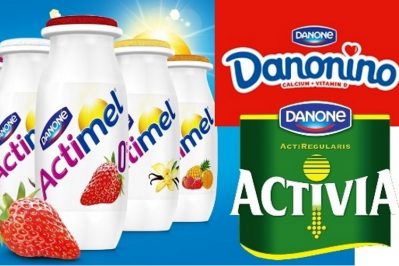Danone jettisons Faber as Chairman and CEO: Will his legacy of sustainable business survive?

“The Board has decided that Emmanuel Faber will step down as Chairman and CEO,” the company said in a statement following a board meeting yesterday.
International CEO Véronique Penchienati-Bosetta and Shane Grant, currently Chief Executive Officer North America, will jointly lead the business while the search for a new CEO is underway. Gilles Schnepp, who joined the Danone board in December, has been appointed Chairman.
Focusing on growth
The news rips up a two-week old compromise between management and activist investors that would have seen Faber stay on as Chairman but step back from his role as CEO. This olive branch was publicly rejected by Faber’s critics, who argued it left him with too much power and tied the hands of the incoming Chief Executive.
The clash between activist shareholders and Faber is purportedly linked to Danone’s failure to deliver top line gains. Critics including Artisan Global Value Strategy and Artisan International Value Strategy, as well as activist hedge fund Bluebell Capital Partners, have been vocal about what they characterise as the company’s lacklustre results, particularly since the onset of the pandemic.
Danone benefits from a strong position in health and wellness foods. It is the owner of leading yogurt brands Activia and Actimel and has a desirable footprint in plant-based products through Alpro in Europe and Silk in the US. Activist investors argued that these strengths are not translating to superior sales and profits. In a recent open letter, Artisan argued that while Danone ‘has one of the best collections of assets in the global food industry’ on ‘almost every measure’, Danone's performance has ‘lagged’.
Danone failed to achieve targets, set in 2017, for organic sales growth of 4-5% and an operating margin of 16% by 2020. In October, the company unveiled a new strategic plan with somewhat less ambitious goals. A month later, the group revealed 2,000 job cuts and the adoption of a local regional structure in an effort to generate cost savings of €1bn - an initiative Danone has dubbed Local First.
This programme, Penchienati-Bosetta told FoodNavigator in a recent interview, is all about growth.
“The Local First project is a growth project. Of course, it will generate savings because [we are] de-layering the organisation, going more local. But it is to be able to invest more in our brands and fast-growing trends, while at the same time leveraging our scale and assets for superior execution across categories,” she insisted.
But these changes in strategy and structure proved unable to placate detractors.
Responding to the news, Stifel analyst Alain-Sebastian Oberhuber said he views Faber’s exit as a ‘positive step’ for Danone, offering a clean slate for any incoming CEO.
“We think that there would be a stronger focus on profitable activities in the future. Furthermore, there would be a clear path for a new CEO, who could also be sourced externally. Finally, the pressure is on, as the company could become a takeover target,” he wrote in a note to investors.
Profit versus mission?
Indeed, the statement from Danone today clearly suggests that growth is top of mind for the company’s Board of Directors. However, there is also a hint that Faber’s efforts to develop a more sustainable business model – including becoming the first listed company to adopt the French legal framework of ‘entreprise à mission’ – could be a lasting legacy.
“The Board believes in the necessity of combining high economic performance and the respect of Danone’s unique model of a purpose-driven company, built on the strength of its brands and enabled by the outstanding quality of its teams,” the statement read.
“I have tremendous regard for Danone’s history and its contribution to society through its world leading healthy food and beverages, and commitment to sustainability,” Schnepp added.
But while the company’s remaining leadership is certainly happy to play lip-service to the progress Danone has made as a leader in corporate sustainability, it is less clear whether this will remain a strategic priority in the future.
Faber, who took over as Danone CEO in 2014, was one of the most vocal advocates in business for a more responsible capitalism, where businesses serve the interests of shareholders, the environment, its partners in the supply chain and society at large. When they approved the change in the company’s legal status to entreprise à mission last year, he famously quipped to shareholders that they had ‘toppled the statue of Milton Friedman’.
The move embedded the group’s social mission within its articles of association (including a purpose) and applied a new governance arrangement to oversee the progress of its environmental and societal goals. Danone began reporting ‘climate adjusted’ earnings last year and is investing in areas like regenerative agriculture and plastics reduction.
While Faber’s critics have not directly come out against the company’s ‘multi-stakeholder’ approach to business, the suggestion that shareholder interests had been watered down is left hanging in the air. What this will mean for Danone’s approach to doing business sustainably in the future now looks uncertain.


















